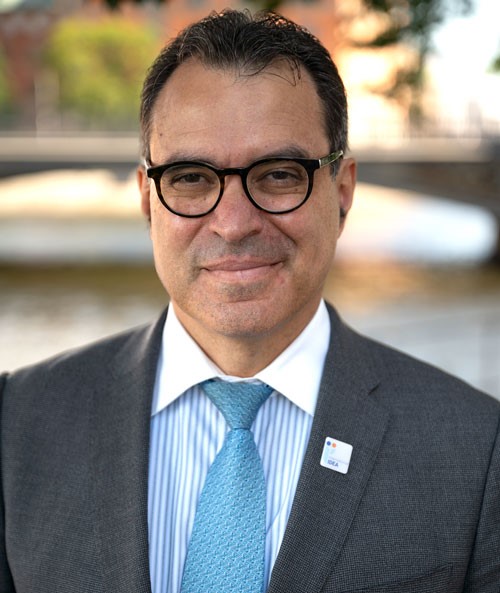A Battle of Narratives: Building Public Support for Democratic Renewal
Thank you so much Ryota, Carl, colleagues and friends.
We are here to discuss a battle of narratives that we need to win, if we want democracy to prevail.
The good news is that the case for democracy remains strong, as we've seen here. Now, I would simply like to mention 3 key arguments that, in my view, we need to hammer over and over and over.
The first one is an argument that Carl has very much insisted upon, and that happens to be crucial in the current pandemic - to a much greater degree than any other political system democracy allows for the correction of policies. This is a function of its allowing the free circulation of information, but also of the possibilities for collective action that are built into the system, and the transient nature of democratic political power. In a democracy worth its salt, you know that you have the chance to throw the rascals out and change course in 4 or 5 years.
Rooting for authoritarian systems is like going to a high stakes casino -- you may strike gold and end up with Lee Kwan Yew, but you may not be so lucky and end up locked into the room with Idi Amin, with no possibility for correction.
The second argument is an empirical one, that comes from our own Global State for Democracy Report. Democracy matters for key tenets of development. It matters, in particular, for gender equality. When you classify the 162 countries covered by our report into democracies, hybrid regimes, and authoritarian systems, and you examine the performance of each group when it comes to gender equality, the disparity that you find is truly remarkable. Whereas only 3 per cent of democracies do really, really poorly when it comes to gender, 10 per cent of hybrid regimes and fully 50 per cent of authoritarian systems do. Moreover, we know that sustainable development runs through gender equality. Therefore, if we stand any chance whatsoever of achieving the 2030 Agenda, we must protect democracy. Sustainable development requires sustainable democracy.
The third argument is simply that to a greater degree than any other political system, democracy treats us as something more than underage dupes. In doing so, it respects our agency and inherent dignity. To those out there that are keen to follow the mirage of order provided by some authoritarian regimes, and that are willing to discount democratic institutions as dispensable luxuries in the quest for material wellbeing, I've got one answer for you - Hong Kong. For some time now, the people that are bravely demonstrating in the streets of Hong Kong are showing that, as the French writer Antoine de Saint-Exupery memorably put it, humankind is not merely a herd that expects to be fed.
What is in crisis is not the case for democracy, but rather the idea that the spread of democracy is inevitable. The truth is that there is nothing inevitable about the advance of democracy. The notion that all human beings are endowed with equal dignity and with the same right to participate in collective decisions; the notion that political power ought to be limited if it is to remain legitimate; the idea that the best protection for human dignity is not tribal bonds, but the existence of a body of rights, protected by law, in the face of which we are all equal; all of those are very new ideas that in many respects swim against powerful tides in human nature. Inequality, the exercise of raw power, and allegiance to tribe and to those who are exactly like us, are the historical norm.
We should always remember that the spread of democracy is an enormous victory against dark forces in our nature. Now all those ancestral forces are rearing their head again in different places. The preservation of democracy demands a lot from us every day, lest we let the jungle grow back.
This is the twilight struggle we have in our hands. As our Call to Defend Democracy states, we need to muster the courage and build the global coalitions to prevail, knowing full well that while the values we defend are eternal, victories are always transitory and the friends we encounter along the way are often fickle, as Anne Applebaum's wonderful new book, shows so eloquently.
Now, more than ever, we must dare to make the case for democracy, with conviction and a sense of urgency. It is a case that has not lost one ounce of its power to inspire and give hope and light in this time of darkness.
Thank you.
View a version of this speech on the International IDEA YouTube Channel.
